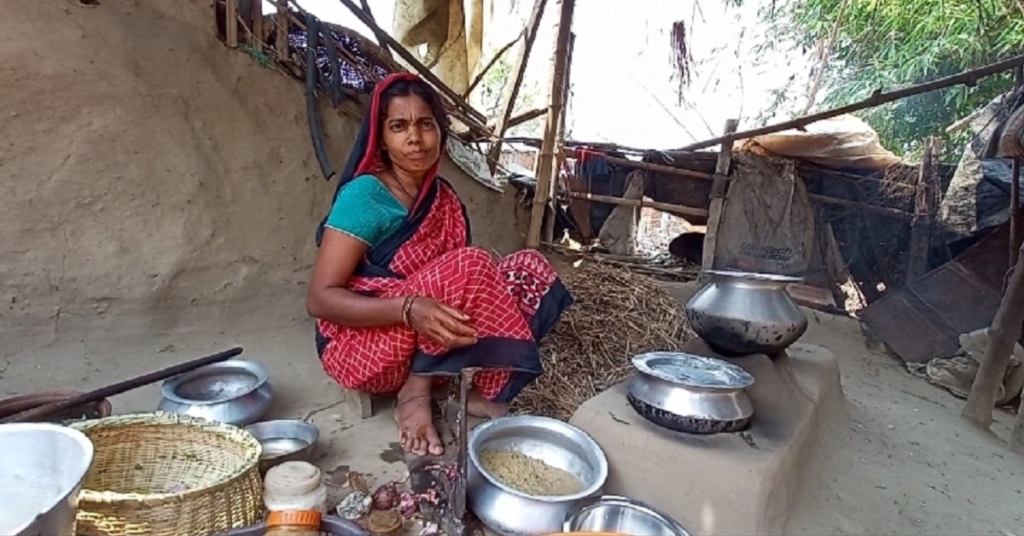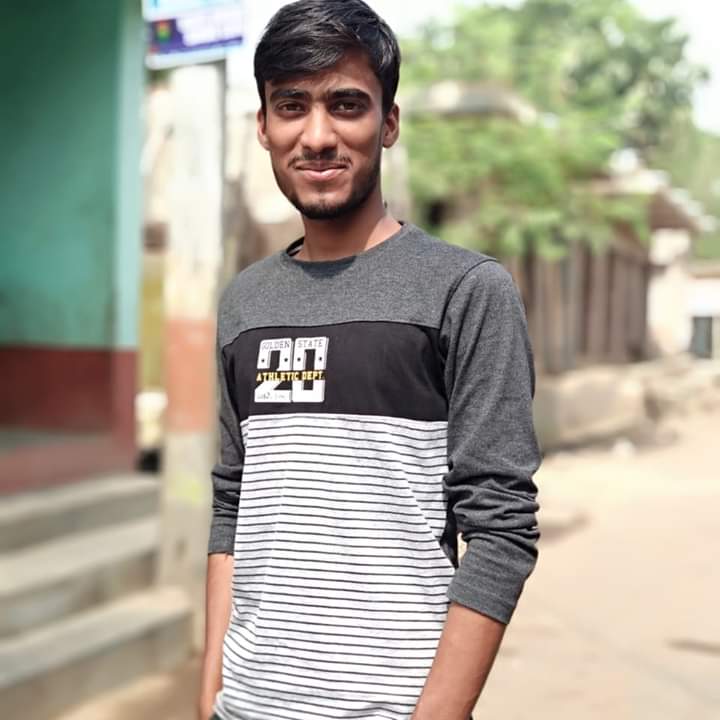
Rising cooking gas prices: Birbhum residents ask how they will eat, if they can’t afford to cook? Low-income families in rural Bengal are already struggling financially due to inflation
12, Sep 2022 | Mohammed Ripon Sheikh
Cooking gas prices have been increasing across India, with a typical 14 kg cylinder of LPG selling for upwards of Rs 1,000/-. This has put an immense strain on people from economically backward and low-income families. In rural West Bengal, many families that were already struggling to put food on the table in the first place, are wondering how to allocate their meager incomes between purchasing food items and paying for cooking gas.
Khaleda Bibi, a resident of Baliyara village of Paikar police station in Birbhum, says, “It was not possible for us to get cooking gas because it was never possible for us to cook at such a high price.” Her husband’s income is limited and the family is already struggling. “My husband is a migrant worker who earns around five thousand rupees per month,” she says, asking, “If we have to buy cooking gas for 1,000 rupees, what will we eat?”
One cannot ignore other important expenditures such as electricity, transport, children’s school fees etc. that these low-income families also need to account for in their already tight monthly budgets. The current gas prices are thus prohibitively expensive for such families, who have no other option but to rely on firewood for cooking.
CJP’s Grassroots Fellowship Program is a unique initiative aiming to give voice and agency to the young, from among the communities with whom we work closely. These presently include migrant workers, Dalits, Adivasis and forest workers. CJP Fellows report on issues closest to their hearts and home, and are making impactful change every day. We hope to expand this to include far reaching ethnicities, diverse genders, Muslim artisans, sanitation workers and manual scavengers. Our raison d’etre is to dot India’s vast landscape with the committed human rights workers who carry in their hearts Constitutional values, to transform India into what our nation’s founders dreamt it to be. Please Donate Now to increase the band of CJP Grassroot Fellows.
Khaleda and many women like her collect dried leaves and firewood from the forest for cooking. But this is not a task devoid of peril, as some women have been victims of snakebites! Then there are concerns about deforestation, with trees being chopped off illegally. Khaleda also complains of shortness of breath and eyesight issues because of the smoke that is generated while using firewood in a clay oven.
Even the much-celebrated Ujjwala Gas scheme is plagued with implementation challenges and has not reached many needy families. Families are still facing enormous difficulties in acquiring a gas cylinder, and those who can’t, are forced to suffer due to the pollution caused by burning wood, dung, leaves and agricultural waste as fuel.
According to the National Library of Indian Medicine, there has been a significant decline in access to clean fuel among rural households from 35% in 2018 i.e. before Covid-19 to 19.7% during the Covid-19 pandemic, and it’s still declining.
Besides the delivery of subsidies, there is a need to create awareness among the rural communities for adopting and using clean fuel on a regular basis for cooking every meal. Both of which seem like a distant dream for women like Khaleda Bibi.
This report is part of CJP’s Grassroots Fellowship Program, and has been written by aspiring journalist and student activist Ripon Sheikh from Birbhum in West Bengal. In these reports Ripon looks at the people around him – migrant workers, the families they leave behind, agricultural labourers, women who do housework, rural artisans and young people, with a keen sense of compassion.
Meet CJP Grassroot Fellow Mohammed Ripon Sheikh

This young man, who has graduated with a B.Sc degree from Burdwan University, loves trivia. Sheikh’s passion to research and seek “unknown information about World History” has earned him many medals and trophies at various University and state-level Quiz championships, and youth festivals.
Sheikh is a born orator and a natural community leader. He has the potential to represent his community, state and country at a global level one day. His immediate goal, however, is to find a job so he can support his parents.
Related:
From popcorn sellers to plumbers, the Covid 19 Lockdown spared no one!
Our children are hungry, we have graver concerns than a temple-mosque controversy: Women of Varanasi










